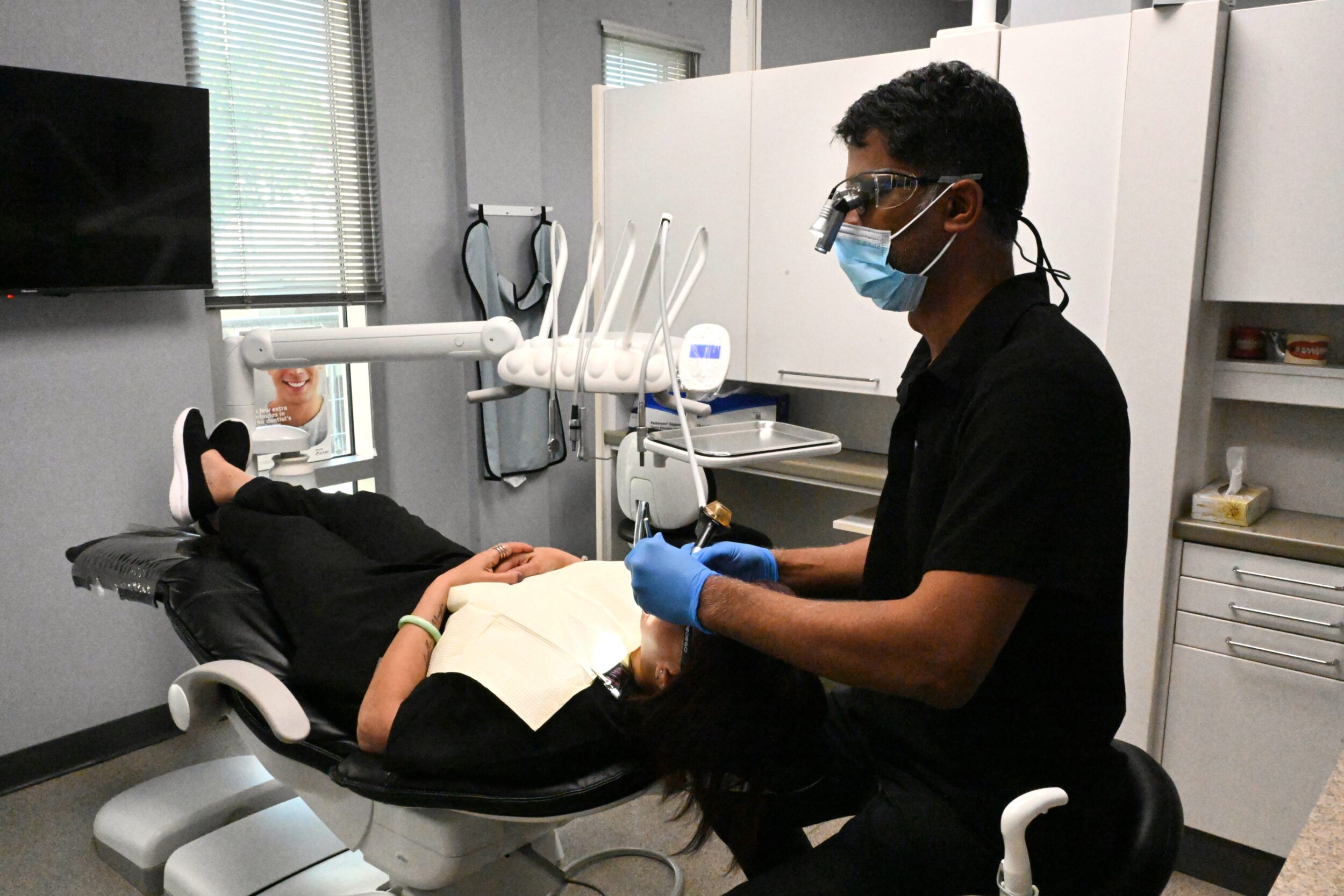Gum Recession
Generally speaking, gingival recession (receding gums) is the process of gradually losing gum tissue, which, if left unaddressed, can eventually lead to the exposure of the tooth root. Adults over the age of 40 are most likely to experience gum recession, but teenagers can also get it.
It’s hard to self-diagnose gum recession in its early stages because it often happens asymptomatically. It is important to maintain regular dental checkups in order to prevent gum recession and identify risk factors.

Gum recession may be accompanied by the following symptoms:
- Teeth that are sensitive – In the event that the gums recede sufficiently to expose the cementum covering the tooth root, the dentin tubules beneath will be more susceptible to external stimuli.
- Visible roots – A more severe case of gum recession is characterized by this characteristic.
- Longer-looking teeth – Those who suffer from gingival recession often have a “toothy” smile. Even though the length of the teeth is perfectly normal, the gum tissue has been lost, causing the teeth to look longer than they really are.
- Halitosis, inflammation and bleeding – These symptoms are indicative of gingivitis or periodontitis. If not treated promptly, a bacterial infection may cause the gums to recede from the teeth and can eventually result in tooth loss if left untreated.
Recession in the gums is primarily caused by a variety of factors
As a matter of fact, gum recession is an incredibly common problem that dentists diagnose and treat every day on a regular basis. A thorough examination of the affected areas is essential in order to make an accurate diagnosis of the underlying problem. It is possible to perform surgical and non-surgical procedures to stop the progression of gum recession and prevent it from occurring in the future once the cause of the recession has been identified. In most cases, gingival recession is caused by the following factors:
- Brushing too aggressively – It is almost as harmful to the gums to brush too much as to brush too little. Too hard or hard-bristled toothbrushes may erode the enamel at the gum line and irritate or inflame the gums.
- Poor oral hygiene – If brushing and flossing are not performed properly or at all, plaque can begin to build up on the teeth. As a result of the plaque, various bacterial toxins are released into the mouth, causing infection and erosion of the underlying jawbone.
- Chewing tobacco – The use of any kind of tobacco has devastating effects on the entire oral cavity as a result of tobacco use. In particular, chewing tobacco will aggravate the gingival lining of the mouth and lead to gum recession if it is used continuously.
- Periodontal disease – It is possible for periodontal disease to develop as a result of improper oral hygiene or as a consequence of systemic diseases such as diabetes. Diabetics suffer from excess sugar in the mouth and narrow blood vessels, which create an ideal environment for oral bacteria to thrive. This bacteria causes an infection that progresses deeper and deeper into the gum and bone tissue, ultimately resulting in tooth loss.
Treatment of Gum Recession
It is important to note that every case of gum recession is slightly different, and therefore there are a variety of treatments available. Prior to dealing with the root cause of the recession, it is essential to address the nature of the problem which caused it to begin with.
An overly aggressive brushing technique may result in the erosion of the gums; therefore, a softer toothbrush and a gentler brushing method should be used. It is possible to remove bacteria and debris from the gum pockets with prophylaxis (professional dental cleaning) if poor oral hygiene is a problem. To heal gingival inflammation and clean teeth that have developed severe calculus (tartar), scaling and root planing is performed.
As soon as the cause of the gingival recession has been identified, cosmetic or restorative surgery may be recommended. Regrowing gum tissue and doing gum grafts are two great ways to restore gum symmetry and make your smile look better.
Please consult your dentist if you have any questions or concerns regarding periodontal disease, periodontal treatments, or gum recession.